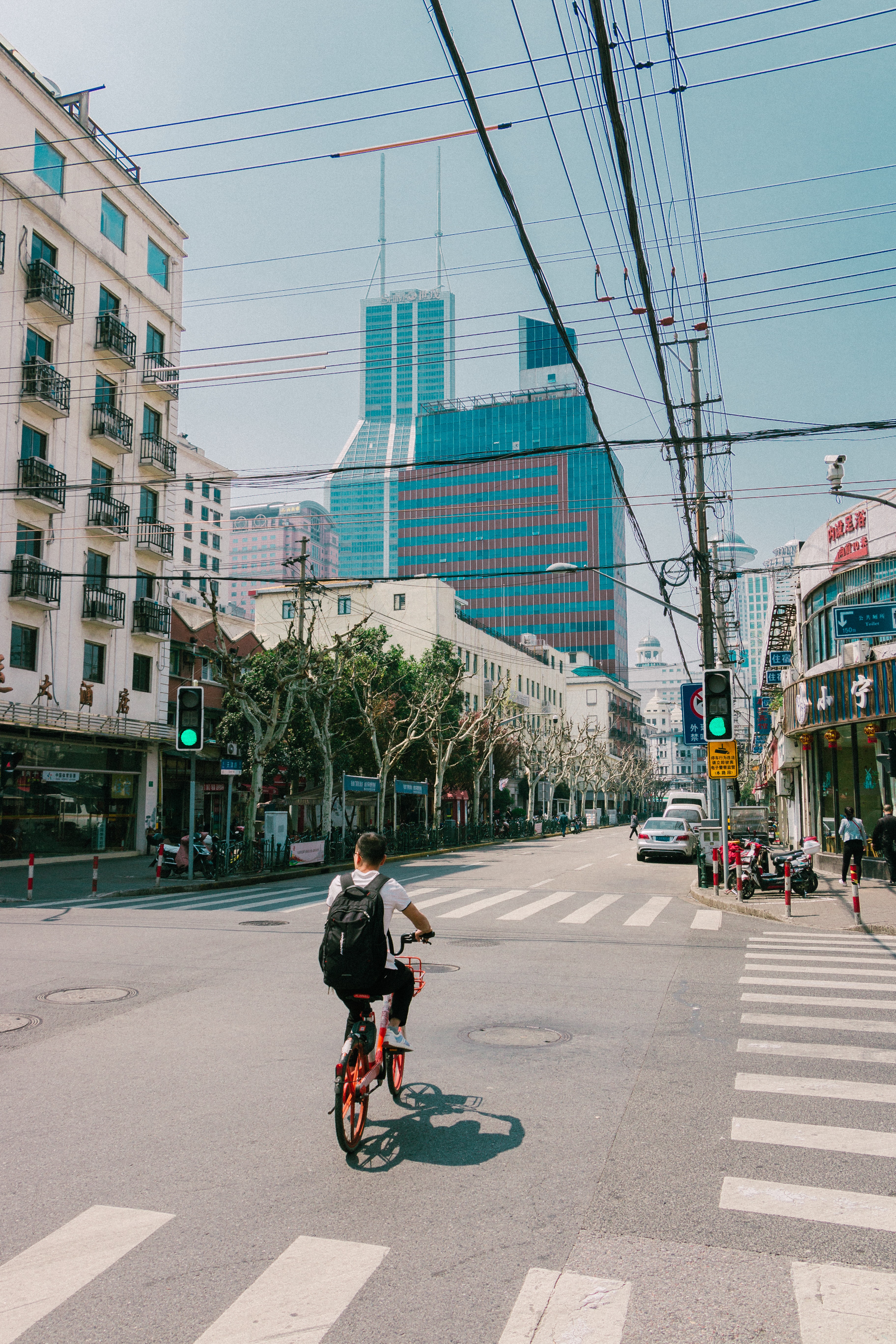‘To Cooperate and Exchange Knowledge’: First Sino-Russian Economic Cooperation Workshop—Economic Performance from Regional Aspects

The HSE Faculty of Economic Sciences and the School of Economics at Shanghai University have co-organised the First Sino-Russian Workshop on ‘Economic Performance from Regional Aspects’. The researchers discussed how they detected and assessed the effects of different economic policies in Russia and China at a regional level. There were more than 200 attendees who registered and attended the meeting. The 1st Sino-Russian Economic Cooperation Workshop started online on November 5, 2022, at exactly 10 a.m. Moscow time. Both universities contributed significantly to making it happen.
Prof. Mao Yanbing, the head of the Foreign Affairs Department at Shanghai University, launched the workshop with great euphoria for commencing such an educative and impactful workshop. He greeted and welcomed all participants and introduced the distinguished guests and speakers. Among those present were Prof. Dr. Dmitry A. Veselov, Faculty of Economic Sciences Deputy Dean for Research, HSE, Ms. Oxana P. Budjko, the Head of the Faculty of Economic Science International Office, Associate Prof. Dr. Demidova Olga, HSE, Prof. Dr. Nie Yongyou, Deputy Dean of the School of Economics at SHU, Prof. Josu, SHU, and Prof. Dr. Xu Lingli, SHU.
In his opening remarks, Prof. Dr. Dmitry A. Veselov, the Deputy Dean for Research at the Faculty of Economics Sciences, explained the significance of the workshop and the significance of the topic "Economic Performance from Regional Aspects" for both China and Russia. He underlined that the Russian Сentral Bank estabilished a team to study this topic because of its relevance, thus it is highly beneficial for both parties to share scholarly ideals through this collaboration. The Faculty of Economics Science (HSE), has made significant contributions to research over the years, which he also noted. He asserted that "Our researchers have an extensive network of research groups in a variety of economic sciences. The faculty, students, researchers, and the world will all benefit from the scientific collaboration between HSE and Shanghai University.
'In order to conduct projects as well as teaching, learning, and research activities, the two universities first inked an academic exchange agreement in May 2021. When this is put into practice, it provides academics on both sides with a valuable link for academic cooperation, which is crucial for both sides. Despite the challenges the pandemic's spread has created, our bilateral collaboration cannot be stopped. Additionally, this collaboration will strengthen the ties of friendship and mutual trust between China and Russia" - said the SHU School of Economics' vice dean, Prof. Dr. Nie Yongyou. He finished his remarks by wishing the speakers luck and a long-lasting working cooperation..

Shanghai University (SHU) was founded in 1922. In 1994, it merged with Shanghai University of Technology, Shanghai University of Science & Technology, and Shanghai Science & Technology College. There are over 50,000 students at the university, and the School of Economics is one of 29 independent university departments.
The partnership between the HSE Faculty of Economic Sciences and the SHU School of Economics began in 2021 with a student exchange agreement.
The Centre for Spatial Econometrics in Applied Macroeconomic Research at HSE University headed by Olga Demidova participated in the workshop. This Centre analyses macroeconomic shocks at regional levels in Russia.
For China, regional analysis is also relevant: the country’s regions are heterogeneous and may experience different shocks. China’s experience might prove to be extremely useful, particularly in terms of meeting new challenges posed by COVID-19. ‘Since these viruses arrived in China earlier, we can use its experience of imposing strict limitations to forecast the possible impact on Russia’, said Olga Demidova.
From Healthcare Costs to Coronacrisis
Artem Demyanenko, lecturer and PhD student at the HSE Department of Applied Economics, spoke on ‘The impact of public health spending on economic growth in Russia: a regional aspect’. He found that, along with increased life expectancy and human capital development, an increase in the share of government spending on healthcare in GRP can stimulate economic growth in a region and alleviate the negative economic effects of pandemics.
Olga Demidova, analysed the changes in the consumption structure of Russian households during and after COVID epidemic from a regional perspective. The study found that those regions with medium and strict quarantine measures did not differ in the structure of consumption of goods and services, while in regions with less strict quarantine measures, the share of spending on food was lower, and on non-food products higher.
China: Subjective Health and Common Prosperity
Xu Lingli from SHU spoke on long-term care insurance, and the physical and mental health of the elderly in China. China has the world’s largest elderly population over 65, accounting for 23.34% of the world’s elderly, according to data from the country's 7th census. As part of its policy on aging, China launched the ‘Healthy China’ campaign and implemented long-term care insurance (LTCI). The study found that LTCI had a considerable favourable impact on the subjective health of the elderly. LTCI is more effective for males and those and with low income, although it can have a negative impact on their families' welfare.
Common prosperity is the number one public goal in China. But it is achievable only if the regional developmental gap is closed, believes Zou Weiyong, PhD Student of SHU, who analysed regional differences and common prosperity in China.
Inequality and Monetary Policy
Valeria Zvereva, Visiting Lecturer at the HSE Department of Theoretical Economics, analysed the effect of inequality on the effectiveness of the interest rate channel of the transmission mechanism of the monetary policy of the Central Bank of the Russian Federation. She found that regions with a higher level of inequality demonstrate a stronger response to monetary policy measures.
Bai Ruisi, a postgraduate Student at SHU, looked at how regional trade agreements (RTAs) affect exports. She found that a reduction in import costs brought about by RTAs encourages an improvement in the quality of the contracting parties' exports through technology spillover channels.
The workshop participants decided to continue their cooperation and carry out more academic workshops. ‘At the end of the workshop, I suggested that our Chinese peers carry out a comparative analysis of the changes in the structure of household consumption in different regions of China and Russia’, said Olga Demidova.
‘I would like to emphasise the interesting format of this workshop. Here, master’s students, PhD students and leading researchers from partner universities have all been able to have their say. This means it has given early-career researchers valuable experience of public speaking at an international event’, Dmitry Veselov concluded.

In her closing remarks, Oxana P. Budjko, the Head of Faculty of Economic Science International Office, expressed her hope to continue cooperation.
The workshop moderator Professor Mao Yanbing concluded by expressing his hope that numerous workshops of this nature would be held in the days to come in order to ensure the ongoing exchange of ideas between these two universities, and in person visits will become possible.
Special thanks to Ms. Tianjiao Sun from the International Affairs Office, School of Economics Shanghai University for her endless efforts in organising the workshop.
Research covered in the workshop
Presenter: Ms. Zvereva Valeria, Postgraduate Student of HSE. Topic: The Effect of the Level of Inequality on the Effectiveness of the Interest Rate Channel of the Transmission Mechanism of the Monetary Policy of the Central Bank of the Russian Federation.
Presenter: Ms. Bai Ruisi, Postgraduate Student of SHU. Topic: RTAs and the Quality Upgrading of Export Product:Mechanism and Effects. Rarely does the current literature look at how RTAs affect the caliber of export goods. The effect and mechanism of RTAs on promoting the quality upgrading of export products are empirically tested in this paper using the RTA implementation profile of 114 economies and trade data at the exporter-product-importer-year level.
Presenter: Mr. Demyanenko Artem, PhD Student of HSE. Topic: The impact of public health spending on economic growth in Russia: a regional aspect.
Presenter: Mr. Zou Weiyong, PhD Student of SHU. Topic: Regional Differences and Dynamic Evolution of Common Prosperity in China.
Presenter: Associate Prof. Dr. Demidova Olga, NRU HSE. Topic: Changes in the consumption structure of Russian households during and after COVID epidemic: regional aspects
Presenter: Prof. Dr. Xu Lingli, SHU. Topic: Long-term care insurance, physical and mental health of the elderly and welfare spillovers

